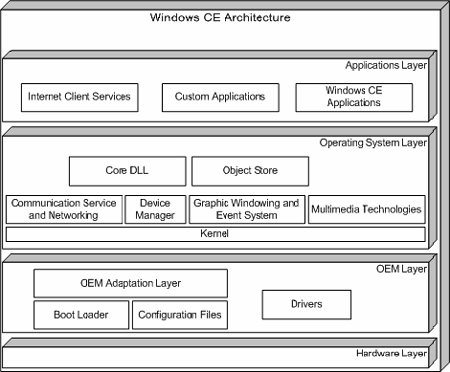Slide 2.15: Windows Mobile-based Pocket PCs (cont.)
Slide 2.17: Windows Mobile-based Pocket PC programming
Home

|
Slide 2.15: Windows Mobile-based Pocket PCs (cont.) Slide 2.17: Windows Mobile-based Pocket PC programming Home |

|

|
This figure shows the modularity of Windows CE 4.20 . Pocket PCs were built on top of Windows CE, which is an operating system that is modularly built. It means that the core operating system contains modules and services that are being used when building new instances of the operating system. |